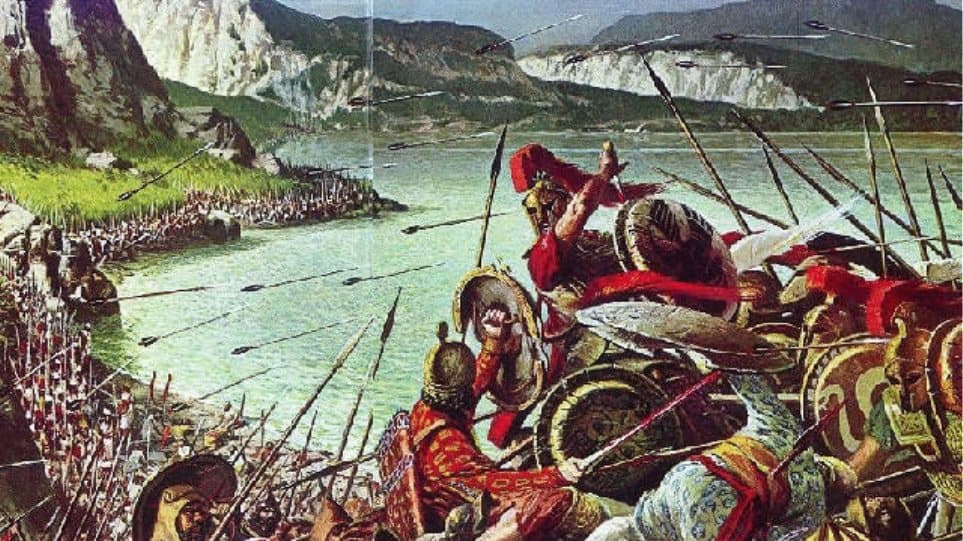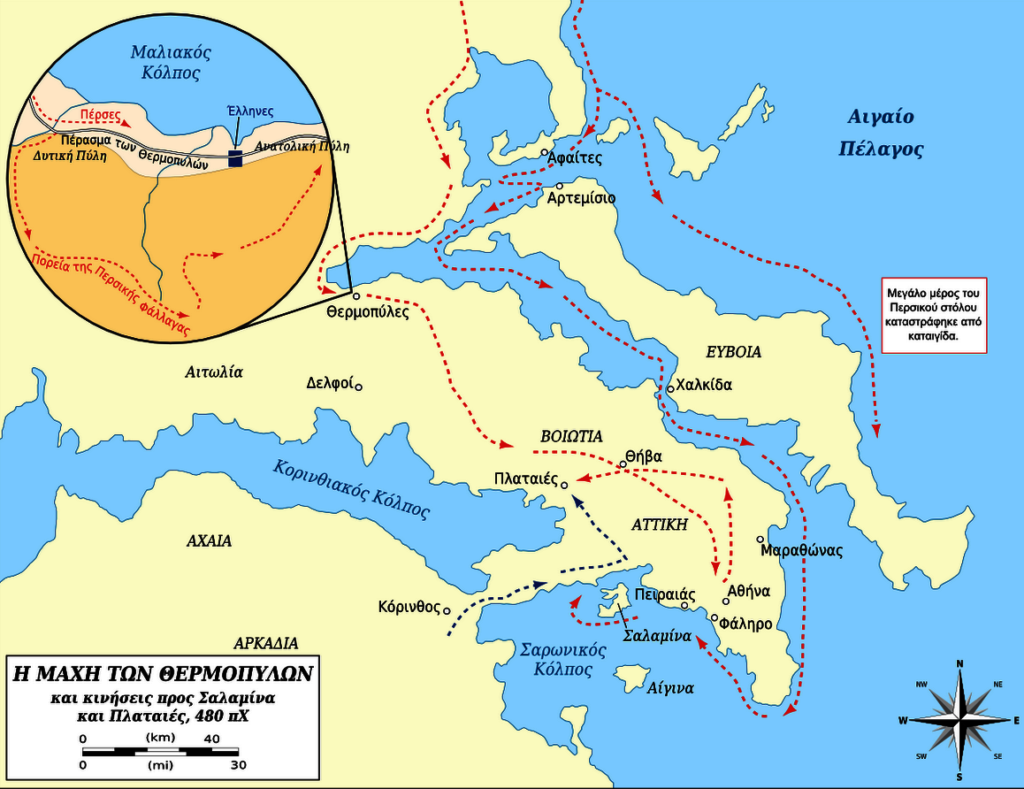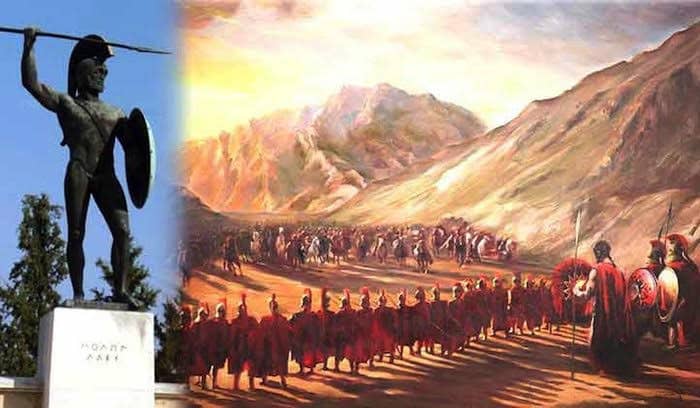The Battle of Thermopylae, 480 BC, was a battle in the second Persian invasion of Greece.

The battle was fought for over three days, at the same time as the naval Battle of Artemisium on 20 August or 8–10 September, 480 BC.
An alliance of Greek city-states of about 6,700 men fought the invading Persian Empire, which had an army of about 242,000 men, at the pass of Thermopylae in central Greece.
Vastly outnumbered, the Greeks held back the Persians for three days in one of history's most famous last stands.
During two full days of battle, the small force led by King Leonidas of Sparta blocked the only road through which the massive army of Xerxes I of Persia could pass.
After three days of battle, a local resident named Ephialtes is believed to have betrayed the Greeks by revealing a mountain path that led behind the Greek lines.

Aware that his force was being outflanked, Leonidas dismissed the bulk of the Greek army, and remained to guard the rear with 300 Spartans, 700 Thespian volunteers, 400 Thebans and perhaps a few hundred others. Most of them were killed.
The Persians succeeded in taking the pass but sustained heavy losses, extremely disproportionate to those of the Greeks, according to Greek historian Herodotus.
Themistocles was in command of the Greek Navy at Artemisium when he received news that the Persians had taken the pass at Thermopylae. Since the Greek strategy required both Thermopylae and Artemisium to be held, given their losses, it was decided to withdraw to Salamis.

The Greek fleet—seeking a decisive victory over the Persian armada—attacked and defeated the invaders at the Battle of Salamis in late 480 BC.
Wary of being trapped in Europe, Xerxes withdrew with much of his army to Asia (losing most to starvation and disease), leaving Mardonius to attempt to complete the conquest of Greece.
The Spartans assembled at full strength and defeated the Persians decisively at the Battle of Plataea, ending the Greco-Persian War and with it the expansion of the Persian Empire into Europe.
Both ancient and modern writers have used the Battle of Thermopylae as an example of the power of a patriotic army of freemen defending native soil.
The performance of the defenders at the Battle of Thermopylae is also used as an example of the advantages of training, equipment, and good use of terrain as force multipliers and has become a symbol of courage against overwhelming odds.

